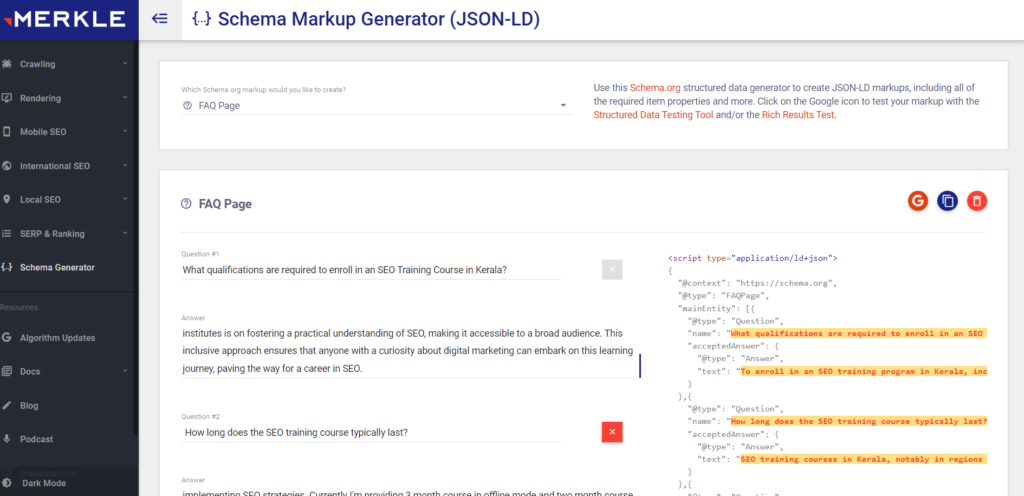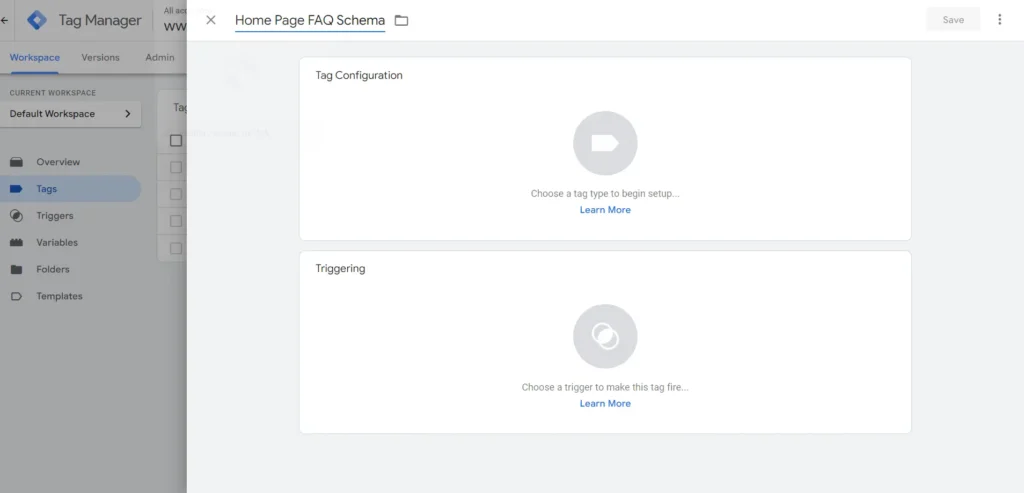How to Create FAQ Schema using Google Tag Manager
Are you looking to enhance your website’s SEO with structured data? Implementing an FAQ schema is a fantastic way to make your site more visible in search results. This guide will walk you through the process of adding FAQ schema to your website using Google Tag Manager. It’s simpler than you might think!
Step 1: Create Your FAQ Schema Code
First, you need to generate your FAQ schema code. This can be done using any FAQ Schema Generator. For this example, we’re using Technical SEO’s Schema Markup Generator. Input your FAQs and get the script ready.

Step 2: Set Up a New Tag in Google Tag Manager
Log into your Google Tag Manager account and create a new tag. You could name it something descriptive, like “Homepage FAQ Schema,” to easily identify it later.

Step 3: Configure the Tag
After naming your tag, it’s time to set it up:
Click on the pencil icon to edit.
Choose “Custom HTML Tag” as your tag type.

Step 4: Insert Your FAQ Schema Code
Copy the FAQ schema code you generated earlier and paste it into the text box provided in Google Tag Manager.

Step 5: Configure the Trigger
Now, set up a trigger for your tag:
Choose “Page View” as the trigger type.
Opt for “Some Page Views” to ensure the tag fires only on specific pages

Step 6: Save Your Trigger and Tag
Once you’re happy with the configuration, save both your trigger and the tag.
Step 7: Test in Preview Mode
Before going live, test your tag and trigger in Google Tag Manager’s preview mode to ensure everything works as expected.
Conclusion
Sanoop Balan
SEO Expert and Analyst
A marketer who never skips a double check, always share tips and insights with precision and never misses a chance to upskill, Because good enough is never Enough
Share to Social Medias
Sanoop Balan
At the heart of my approach to Online and Offline Training is collaboration and creativity. I believe in fostering an environment where ideas flow freely and collective efforts lead to exceptional outcomes.
Most Recent Posts
- All Posts
- General Blogs
- GTM
- Search Console
- SEO Blogs
- SEO Training
- Structured Data
- Uncategorized


